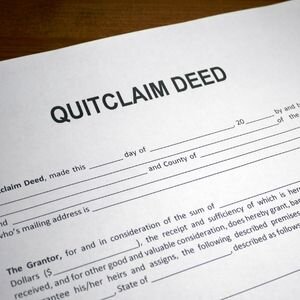
When selling a house in Raleigh, NC, the complexities of property transaction documents can be daunting. Working with cash home buyers in Raleigh can help simplify the process, especially if you’re unsure how a quitclaim deed may affect your sale.A quitclaim deed, often used to transfer ownership without warranties, might raise questions about its validity in a sale. Understanding North Carolina’s requirements is essential for a successful legal transaction. This guide analyzes the nuances of using a quitclaim deed in the Tar Heel State, ensuring home sellers make informed decisions and avoid unforeseen pitfalls in their property dealings. Explore how a quitclaim deed can affect your selling process in Raleigh.
Understanding Quitclaim Deeds in Raleigh, NC

Exploiting the intricacies of real estate, quitclaim deeds offer a unique approach to property transfers in Raleigh, NC. These deeds serve distinct purposes, especially when formalities require simplicity and trust. A quitclaim deed is often employed to transfer interests between family members or resolve ambiguities in property title. In North Carolina, quitclaim deeds come with specific legal requirements and functions that each party must understand. This exploration will analyze the purpose of these deeds and the legal stipulations vital for their execution, ensuring a smooth, legally sound property transfer process in the state.
The Purpose and Function of a Quitclaim Deed
In real estate, the quitclaim deed is a valuable legal tool for transferring property interests, allowing for swift and straightforward conveyances. A quitclaim deed enables an individual, the grantor, to transfer whatever interest they hold in a specific property to another party, known as the grantee. Notably, the quitclaim doesn’t guarantee that the property is free of encumbrances or that the grantor holds a valid title. Because of its nature, this deed is predominantly used in non-sale transactions where trust is a paramount factor, such as between family members, to resolve disputes or transfer property into a trust or business entity. In Raleigh, NC, and throughout North Carolina, the simplicity of executing a quitclaim deed has made it a preferred choice for quick and uncomplicated transactions. Unlike warranty deeds, which assure a clear title and provide several protections for the buyer, quitclaim deeds involve no such promises.
This makes them unsuitable for standard market sales where buyers require assurances about what they’re acquiring. However, their flexibility and low cost endear them to those looking to streamline property transfers that might otherwise involve layered complexities in legal proceedings or family settlements. When using a quitclaim deed to transfer property in North Carolina, all parties must understand the absence of warranties. This understanding helps mitigate any potential for future disputes, as the grantee cannot claim a faulty title against the grantor. Therefore, individuals often approach these deeds cautiously, ensuring that both sides are well-informed about the nature of the conveyed ownership. Particularly in estate planning or arranging property distribution among heirs, quitclaims offer a simple method to reflect agreed changes in ownership, provided all parties have the same understanding of the deed’s implications.
Legal Requirements Implied in North Carolina
In North Carolina, executing a quitclaim deed requires meticulous adherence to specific legal requirements to ensure its legitimacy. The document must clearly identify the grantor and grantee, specifying the extent of the interest being transferred. The language used in drafting must unambiguously convey the grantor’s release of their interest, guaranteeing title validity or freedom from liabilities. As with other deeds in North Carolina, the quitclaim deed must be executed and acknowledged before a notary public, affirming the identities and voluntary consent of the parties involved.
Recording the quitclaim deed with the local county register of deeds is crucial, as it provides public notice of the property transfer. Failure to record might affect the grantee’s rights against third parties, requiring the deed to include a preparer to ensure transparency about the entity drafting the document. A proper property description is necessary to avoid disputes over the transferred area, aligning with North Carolina’s standards for property description.
The North Carolina General Statutes require the appropriate excise tax payment when recording. This taxation is calculated based on the property underlying the administrative property transfers. Grantors must provide accurate information about any liens or encumbrances on the property included in the deed to avoid future litigation or claims.
Consultation with real estate attorneys or legal advisors is often necessary to ensure compliance with all legal requirements, particularly when navigating scenarios with complex estate implications. Understanding these requirements helps grantors and grantees facilitate a secure transaction while aligning with all legal expectations. It points out the value of diligence in preparing and handling quitclaim deeds to safeguard the involved parties and solidify the integrity of the real estate transaction in Raleigh, NC. For additional guidance, see our full resource on How to Sell a House with Flood Damage in Raleigh NC.
Can You Sell a House with a Quitclaim Deed in North Carolina?
Selling a house with a quitclaim deed in North Carolina poses particular problems, but it is not impossible. Quitclaim deeds primarily transfer property interest without guaranteeing the title’s absence of warranty. This can create obstacles, especially in the conventional real estate market, where buyers demand assurances. Addressing these concerns before moving forward is essential to facilitate a successful sale. Understanding the quitclaim deed, its potential limitations, and preparation steps can help sellers navigate this complex process, ensuring a seamless property transaction despite the inherent complexities.
Potential Challenges in Selling with a Quitclaim Deed
Selling a house in North Carolina with a quitclaim deed might be hard because it doesn’t come with a warranty, which makes potential purchasers hesitant. A quitclaim deed gives up whatever interest the seller may have in the property without guaranteeing a clear title, unlike a warranty deed. This means that anyone who want to acquire the property are taking on the risk of any legal problems or lawsuits that are still open. For example, if a quitclaim deed is used to sell a property, the buyer can run into unknown heirs or liens that weren’t disclosed, which would make the deed transfer procedure more difficult. These problems can make a buyer less reluctant to go on without full proof of the buyer’s insurance.
Steps to Addressing Deed Concerns Before Selling
Before selling a property through a quitclaim deed in North Carolina, several steps can be taken to address underlying concerns about the deed and ensure smoother property transfers. First, obtaining a title search is crucial. This process helps identify encumbrances, liens, or claims that may not be evident but could impede the property’s title. It is an attractive prospect for buying property. Solving any outstanding issues beforehand can significantly improve the property’s title. Alongside a title search, securing title insurance is also advisable, offering buyers peace of mind by protecting against unforeseen claims or disputes over ownership post-sale. If feasible, sellers should consider transitioning from a quitclaim deed to a warranty deed. This alternative guarantees a clear title, which can appeal to potential buyers and their lenders more. If a warranty deed is not an option, addressing potential buyers’ concerns about the transfer can involve detailed buyer disclosures. Open communication about the history and status of the property, including any heirs involved or county requirements, demonstrates transparency and builds trust with buyers. Engaging a real estate attorney is also a prudent step. Legal professionals can provide advantageous guidance when navigating North Carolina’s regulations, ensuring all necessary documents comply with state and county regulations. They can assist in drafting the quitclaim deed, ensuring clarity and accuracy, and guiding you through the county register’s recording process. To better understand how our process works, sellers can also review step-by-step resources that simplify selling with a quitclaim deed. They can assist in drafting the quitclaim deed, ensuring clarity and accuracy, and guiding you through the county register’s recording process. Recording the deed properly, as it provides public notice of the property transfer, reduces the risk of future disputes. Finally, sellers should not overlook an administrative step involving properly executing the quitclaim deed. This requires the presence of a notary public to witness the signing, which lends credibility and legality to the process. Sellers can address potential deed-related complications by taking these proactive measures, improving their chances of a successful and hassle-free property sale.
Transfer Process: Transferring Property via Quitclaim Deed

For a seamless transaction, it is important to know how to use a quitclaim deed to transfer property in North Carolina. Quitclaim documents are a special way to transfer property, especially between family members or others you trust. The North Carolina Register of Deeds is a key part of this process, which usually comprises simple but exact legal and administrative requirements. Use this tutorial to discover the basics of signing and documenting a quitclaim deed, as well as the steps and things to think about for a smooth property transfer in the state.
This table provides a concise overview of the quitclaim deed process and the pivotal role of the North Carolina Register of Deeds, ensuring a clear understanding of each step and its significance.
Step-by-Step Guide to Transferring Property in North Carolina
Transferring property through a quitclaim deed in North Carolina requires careful adherence to specific procedures to ensure its legality and effectiveness. The initial step involves preparing the quitclaim deed document, which must state the grantor’s and grantee’s names and describe the property. It is crucial that the document explicitly state the grantor’s intent to rest without a warranty of title—a key characteristic differentiating quitclaim deeds from warranty deeds. Once the deed is prepared, both parties should meet with a notary public to sign and acknowledge the document. Notarization is a critical step, as it provides reassurance regarding the authenticity of signatures and consent of the parties involved in the property transfer. The notarized document then requires submission to the local county register of deeds, where it will be recorded. The recording process is pivotal, ensuring public notice of the property transfer and protecting the grantee’s interest. In North Carolina, the deed must be guaranteed by an affidavit confirming that no delinquent tax is owed on the property to prevent future legal complications. Furthermore, calculating and paying any applicable excise tax upon filing is essential, with the rate typically depending on the property’s type. Engaging a real estate attorney can be beneficial.
Role of the North Carolina Register of Deeds
The North Carolina Register of Deeds is very important for transferring land with quitclaim deeds. His government office is in charge of keeping public records, which includes full and exact records of all property transactions in each county. The quitclaim deed must be recorded with the Register of Deeds in order for the property transfer to be legal and final. This is done so that the public is aware of the transaction, which protects the grantee’s rights. When a quitclaim deed is brought to the Office of the Recorder of Deeds of the grantee, the office checks the paper to make sure it follows all the rules set by the law. This includes making sure that the deed has the right property title, all the required signatures, and has been properly notarized.
Proper documentation is crucial, as any omissions or errors might render the deed invalid, leading to potential disputes regarding property title or encumbrances. The office also collects and enforces excise tax on property sections. The excise tax is levied based on the property’s sale price or perceived value and is part of the recording process. Paying this tax is a necessary step affecting the transfer’s legality. The Register of Deeds ensures that it is accurately handled during the filing.
The Register of Deeds office also makes things more open by keeping a database of registered deeds that anybody can access. It keeps track of who has owned the property in the past, which makes it a good source for settling future disputes or claims over the land. Transparency also helps with property searches, which are important for finding out who owns the property and avoiding problems that could make it harder to sell or get a loan. The North Carolina Register of Deeds, Cary, makes sure that the process of transferring property is lawful and honest. They keep records that make sure that real estate transactions in the state are reliable. To make sure that property transfers through quitclaim deeds go smoothly and safely, it’s important to know what this state does. Aim deeds.
Protecting Your Interests with Title Insurance

When buying or selling a house in North Carolina, title insurance is very important, especially when working with quitclaim deeds. It keeps buyers and lenders from having problems or claims about the property in the future. Because there are no title promises when you sell a house with a quitclaim deed, it can be hard to do. This is why title insurance is so important to think about. By understanding how quitclaim papers and title insurance work together, sellers can better handle the complicated process of selling a home in Raleigh, NC, protecting their interests and making sure the sale goes smoothly.
Understanding Title Insurance for North Carolina Quitclaim Deeds
Title insurance is critical when dealing with quitclaim deeds, particularly in North Carolina, because of the unique nature of property transfers that involve these deeds. A quitclaim deed provides no warranty or guarantees regarding the status of the title, which can lead to vulnerabilities for both buyers and sellers. Insurance offers protection by covering potential claims or disputes over the property that may arise afterward. This type of insurance in North Carolina involves a detailed title search to uncover any liens, encumbrances, or issues that could affect the property’s title or market during the sale. Stability.
When a property is a quitclaim deed, the absence of an apparent settlement for prospective buyers hinders the property’s marketability. Title insurance reduces the risk associated with the transaction by addressing buyers’ concerns about covering any title defects. Section title insurance helps clarify the status of a property, making it a vital component for sellers looking to improve their prospects in a competitive real estate market. Additionally, including title insurance as part of the sales agreement can be a powerful negotiation tool, offering peace of mind to buyers wary about the uncertainties associated with quitclaim deeds.
In practical terms, securing title insurance involves an initial title search conducted by a professional that thoroughly examines the property and identifies potential roadblocks to a clear title. It is crucial for revealing unpaid taxes, unresolved liens, or competing claims from heirs or previous owners. By addressing these concerns beforehand, sellers enhance buyers’ trust and confidence in the transaction. Once buyers lack a warranty, at-title insurance also helps with the deed. Ultimately, leveraging title insurance is an indispensable strategy for safeguarding all parties involved in quitclaim transfer deals in North Carolina. While Raleigh is a key market, our team also assists homeowners in nearby areas—we buy houses in Winston-Salem and offer the same hassle-free process for sellers who need fast solutions.
Ensuring a Clear Title Before a Property Sale
For a homeowner in North Carolina contemplating the sale of a property with a quitclaim deed, ensuring a clear title is paramount to a successful transaction. A car title assures potential buyers that the property has no legal claims, liens, or encumbrances. The first step toward achieving this is to conduct a comprehensive title search. This process, usually done by title companies or real estate lawyers, means carefully checking public records to identify any problems that could impact the title—finding these problems early allows the seller to fix them ahead of time, which is essential for keeping the property’s value and making the legal transfer easier.
Resolving issues uncovered during the title search is crucial to selling a property with a quitclaim deed. These could range from unpaid property taxes to undisclosed claims by heirs or disputes regarding boundary lines. Addressing these hiccups can involve legal intervention, such as filing quiet title actions, which resolve ambiguities and clarify the property’s ownership. This notes the seller’s property and increases the seller’s attractiveness to buyers who are naturally cautious about potential post-sale disputes.
Additionally, transitioning from a quitclaim deed to a warranty deed is another viable option, particularly if the issues with the title are rectified. A warranty deed gives buyers confidence in the title’s value, offering legal protections that a quitclaim deed does not. Tracing is not feasible; securing title insurance can mitigate buyer concerns and facilitate a seamless purchase, as it offers a financial safety net by covering unforeseen claims that could arise after the transaction.
Making sure there is a clear title on a North Carolina property that has a quitclaim deed before putting it on the market is not only the law, but it also builds buyer trust and makes the property easier to sell. If buyers do these things early on, they can avoid expensive legal problems and make their home more competitive on the market, which leads to a smoother and faster sale. Talking to real estate experts, like title companies and lawyers, can give you important information and help during this process, making sure that everything is taken care of and the sale goes smoothly.
In summary, selling a house with a quitclaim deed in Raleigh, NC, involves understanding specific state regulations and ensuring clarity in property titles. While quitclaim deeds offer simplicity, they may not provide the comprehensive protection buyers seek, potentially affecting the sale process. Consult with a real estate attorney or professional to navigate these nuances effectively. Ready for the next step? Download our free guide to North Carolina property transactions or contact us for a personalized consultation. Consult with a real estate attorney or professional to navigate these nuances effectively. Ready for the next step? Download our free guide to North Carolina property transactions or contact our team for a personalized consultation. Bark on on your journey with the proper knowledge today!
Helpful North Carolina Blog Articles
- Selling Your Home And Relocating In North Carolina
- Selling A Home With Tenants In North Carolina
- Taxes When Selling Your House In North Carolina
- Selling Your Home Amid Divorce in North Carolina
- Selling A Fixer-upper Home In North Carolina’s Real Estate Market
- Selling A House While it is in Foreclosure in North Carolina
- Selling a Probate House in North Carolina
- Selling Your Home Without A Realtor In North Carolina
- Sell Your North Carolina Home With An Existing Mortgage
- Tenant Damage to Property In North Carolina
- Sell Your Home Despite Mold Issues in North Carolina
- Best And Worst Neighborhoods For Real Estate Investments In NC
- Property Tax Rates For Homeowners And Real Estate Investors In NC
- Understanding North Carolina Quitclaim Deed Rules
- Expert Property Management Services For Homes In North Carolina

| Step | Requirement | Purpose |
|---|---|---|
| Prepare the Quitclaim Deed | Accurate property details and parties’ identification | Accurate property details and parties’ identification |
| Sign the Deed | Transfer property rights without the parties’ | Legal acknowledgment of the transfer |
| Deliver the Deed | Physical handover to the grantee | Completes the transfer of ownership |
| Preserves the integrity of property records | Submit a deed and pay a filing fee. | Officially document the transaction |
| Function | Importance | Outcome |
| Document Recording | Ensures public record accessibility | Secures public notice of property claims |
| Record Maintenance | Preserves the integrity of property records | Facilitates future property transactions |
| Fee Collection | Funds the maintenance of registry services. | Ensures sustainable recording operations |
